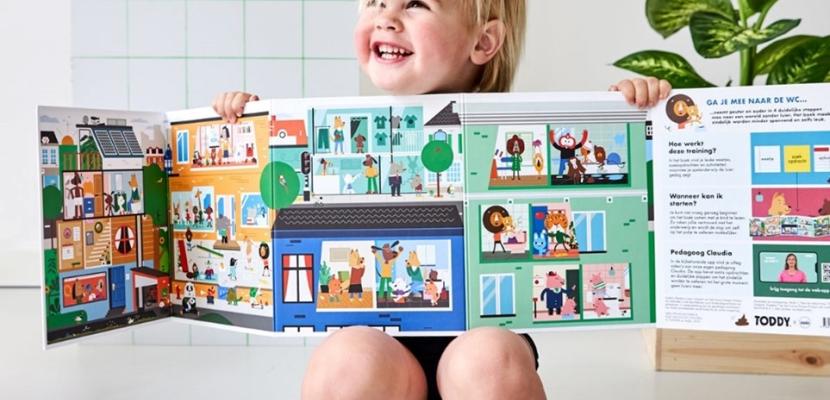
Ready for potty training

About this good practice
Using washable cloth diapers
The city of Apeldoorn provided the child-care organizations with an all-inclusive-package for free (training, cloth diapers and a washing service including transport).
Three groups of stakeholders were interviewed at the start of the pilot, during the pilot and at the end of the pilot.
• The parents of the children
• The staff of the child-care organization
• The management of the child-care organization
For six months, the project ran in two nurseries, where during this period mostly washable diapers were used for all children in the daycare. The nursery workers played an important role in this, for they executed the work (changing diapers during the day and coordination the logistics of washing).
Ready-for-potty training
Since 2024, the municipality offers the habitants (parents of newborns) a ready-for-potty training for free. The age on which children are ready for potty has changed during the last twenty years (it takes longer). Offering a ready-for-potty training can result in a ready-for-potty status at a younger age. That results in a smaller amount of used single use diapers.
When registered, parents are given an illustrated book and can use the accompanying app for free. On request, parents can consult a pedagogue online, to ask questions. Over a 1000 parents applied for joining the training module, spread over the city. The project is still going on.
Resources needed
The diaper project tooks about 250 hours. The start (designing/involving stakeholders) took most of the time. Running, it costs about 50 hours per year.
The investment of the washable cloth diaper project was in total EUR25.000,-.
The costs from the ready for potty training are 40 euro’s / child.
Evidence of success
Washable cloth diapers
• attitude of staff (organization) and parents towards sustainability are the most important factors.
Ready-for-potty training
• there is a need for potty training, in all target groups, no difference in social economical situation, background or age of the parents.
The ready-for-potty training is the best way to reduce use of single-use diapers and helps directly people in poverty.
Facts 2024, 951 kids, saved 620 diaper years,163 tons less diaper waste.
Potential for learning or transfer
In the project, we learned the ready-for-potty training is far more easy accessible and has a lower threshold then using washable cloth diapers. The potty-training is about learning by doing and can be put into practice right from the start. We recommend investing in this training, also because the environmental impact of getting potty-trained (and not needing diapers anymore) is bigger than still having to use washable diapers. Social economically seen: for people living in poverty, the investment of washable diapers at once is often to large. The ready-for-potty training however is for free and leads to the end of using of diapers earlier. This training is available for all inhabitants and therefor does not lead to inequality.